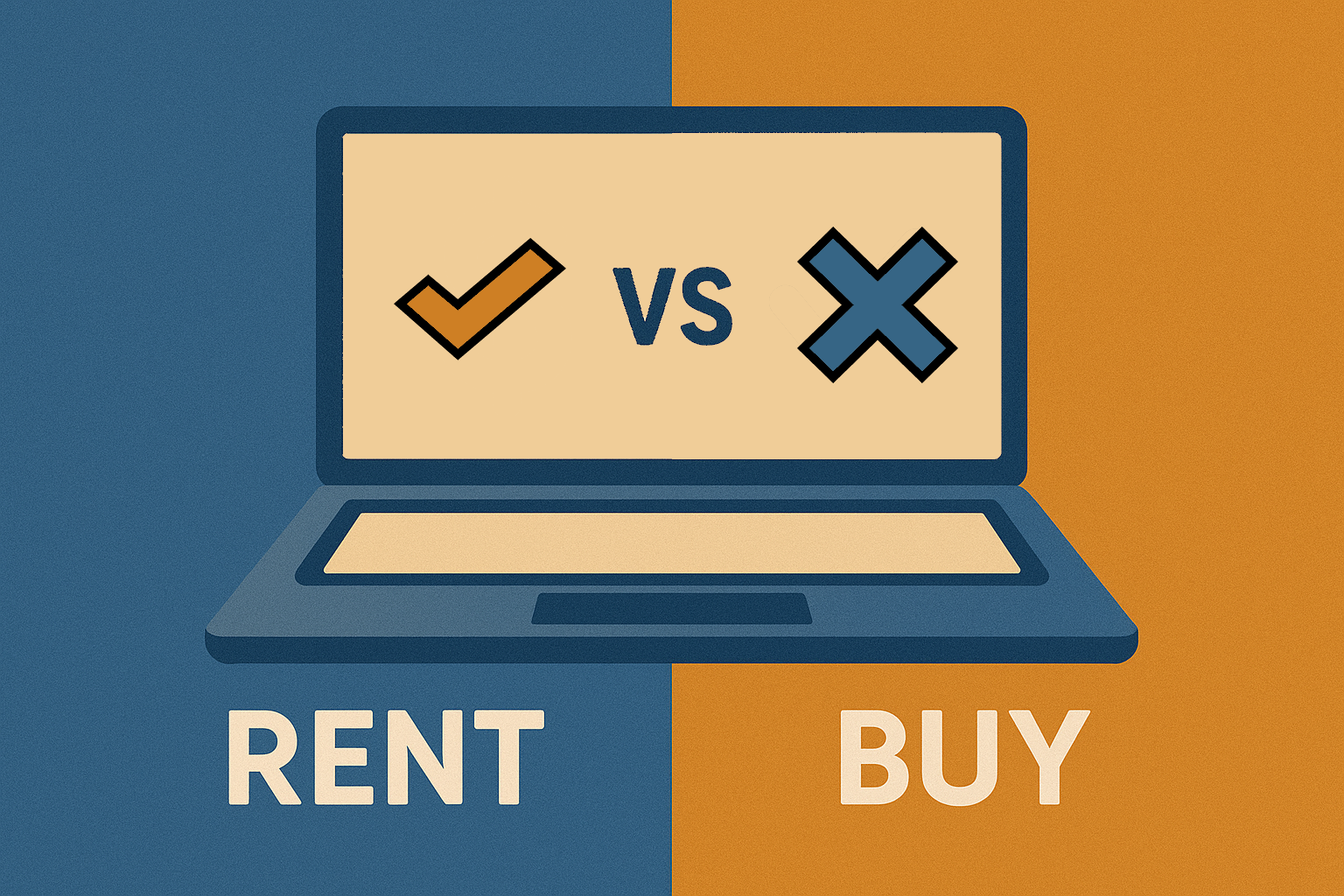Renting vs. Buying IT Equipment: What’s Right for Your Business?
Whether you're launching a startup, scaling a growing company, or managing a large enterprise, your IT infrastructure is a critical investment. But the big question remains: Should you rent or buy your IT equipment?
From laptops and desktops to servers and networking gear, each option has its own advantages. This blog will help you compare the pros and cons of renting vs. buying IT equipment so you can make the best decision for your business needs and budget.
The Case for Renting IT Equipment
1. Lower Upfront Costs
Renting eliminates the need for large initial capital investment. Instead of spending lakhs on new laptops or servers, you can access high-end devices through affordable monthly payments.
2. Flexibility & Scalability
Need 5 laptops today and 20 next month? Renting makes it easy to scale your IT setup based on short-term or seasonal demands—ideal for project-based teams, new hires, or remote work setups.
3. Access to Latest Technology
Technology becomes outdated quickly. Renting ensures you always have access to the latest models and specifications, keeping your business competitive without worrying about depreciation.
4. Maintenance & Support Included
With rental plans from companies like Trend IT Solution, maintenance and technical support are typically included. This reduces downtime and eliminates the hassle of managing repairs and upgrades.
5. Ideal for Short-Term Projects
If you need equipment for temporary needs—like training programs, internships, or events—renting is far more cost-effective than purchasing.
The Case for Buying IT Equipment
1. Long-Term Ownership
Once purchased, the equipment is yours. There are no recurring rental fees, and after a few years, the cost of ownership may be lower than continued rentals.
2. Customization Freedom
Ownership offers more control over how equipment is used, configured, and upgraded, especially for businesses with specific hardware or software requirements.
3. Asset Value
Purchased equipment can be considered a business asset, which may add value to your company's balance sheet and be used as collateral if needed.
4. Ideal for Consistent Usage
If your business has a steady team and predictable hardware needs, buying may be more economical in the long run—provided you don’t need frequent upgrades.
Key Comparison Table
| Feature | Renting IT Equipment | Buying IT Equipment |
|---|---|---|
| Upfront Cost | Low | High |
| Monthly Expense | Yes | No |
| Maintenance | Included | Paid separately |
| Flexibility | High (easy to scale) | Low |
| Technology Access | Always up-to-date | May become outdated |
| Best For | Startups, short-term projects, remote teams | Stable, long-term setups |
Conclusion: What’s Right for Your Business?
If your business values flexibility, cash flow efficiency, and access to the latest technology, then renting IT equipment from a trusted provider like Trend IT Solution is the smarter choice. However, if you have a long-term setup and stable needs, buying could be more cost-effective in the long run.
Still unsure? Trend IT Solution offers customized rental plans that allow you to test and evaluate equipment before committing—giving you the best of both worlds.
Contact Trend IT Solution today to explore flexible rental options for laptops, desktops, and more—tailored to your business needs and budget.

